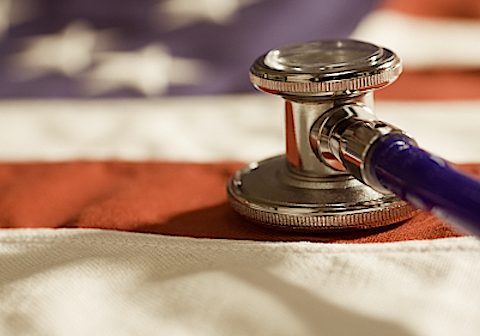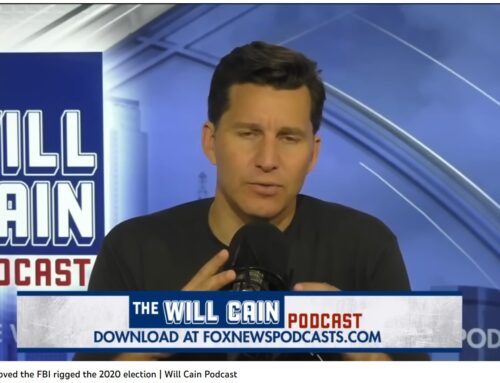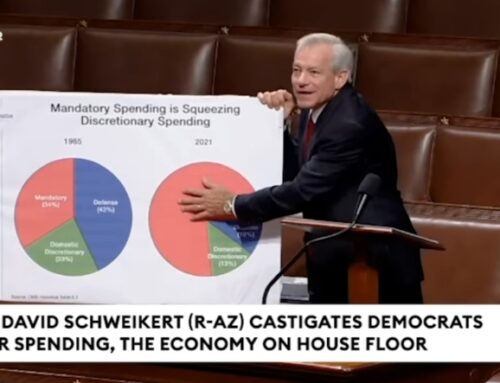Give Me Liberty, or Give Me ObamaCare!
Supremes to Consider ObamaCare This Week
by Joe Guarino, chairman, Richmond TEA Party
An obvious play on Patrick Henry’s famous quote—“Give me liberty, give me death!”—this is the essential crux of the battle over the Affordable Care Act, a.k.a., ObamaCare. Do we Americans desire the liberty on which our country was founded more than the police-state tactics of being forced to purchase a product against our will?
Most Democrats, liberals, progressives, socialists, Marxists, communists, and fascists, along with most of the elite in big businesses, including the big insurance conglomerates, believe that all people breathing, living, and working on American soil should be required to purchase health insurance under government mandate and that this is more important than allowing these same people the liberty to make their own choices and suffer the consequences for the same. They argue that, by not buying health insurance, the uninsured have become a burden on the insured, and thus must be forced to purchase health insurance. This solution, however, comes at the expense of liberty—that quaint, unalienable right found in the Declaration of Independence, alongside life and the pursuit of happiness.
These same “government knows best” folks would have you move health insurance to the top of your personal budget. Too bad if you have to buy food for your family. Too bad if you have to pay a mortgage or rent to keep a roof over your head. Too bad if you have to pay for gas for that vehicle that will get you to work so that you can then pay your income taxes. Too bad if you have to pay utility bills to keep electricity, heat/AC, and water running in your home. Too bad if you have to replace your hole-ridden shoes, pants, or underwear. It’s just too bad. They argue that, because at some point in your lifetime you will use some part of the health care system, you must be required to pay for health insurance for your entire life. Well, what about that very large block of Americans who live healthy lives and never go to the doctor? What about that very large block of Americans who have learned that conventional medicine can’t and won’t help them and have thus turned to complementary and alternative medicine for which insurance will not pay a dime? Too bad! Thou shalt be sucked into the system.
Liberty lovers, on the other hand, believe that these same folks on American soil should be allowed to choose whether they desire to purchase health insurance. They should be allowed to determine where in their economic lives this product would fit. With these decisions come risks. That’s the challenge of liberty. Yet it’s one of those great rights with which our Creator has endowed us. And, frankly, any government trying to replace or squelch liberty is entering into the wrong war zone.
The “We the People know best” folks would have you believe that people are smart enough to make their own decisions about their personal finances and health. Is purchasing health insurance relatively any more difficult than purchasing auto insurance, a home, an automobile, a computer system, life insurance, an Internet and cable TV package, and so on? Each requires a person to educate himself on the basics and advanced features of the product. Then a person must decide if and how it will fit into his personal budget, considering the risks and benefits of purchasing or not purchasing. If he chooses not to purchase, then that’s part of the free market. No other entity should force itself into this decision-making process.
The US Supreme Court Considers ObamaCare This Week
Numerous news outlets and think-tank organizations will be covering the news that will emanate from the hallowed halls of the US Supreme Court as it considers the merits of various aspects of the Affordable Care Act, a.k.a., Public Law 111-148. In summary, the nine Supreme Court justices will entertain discussion on four issues over these three days:
Monday: Is the fine for not purchasing the government-mandated health insurance—the “individual mandate”—actually a penalty or a tax? The federal government lawyers have tried to argue it both ways. A penalty is individually based and applies to some subset of the whole. A tax is collectively based and applies to all. If the Supremes decide it’s a tax, then nothing can be decided on this point until after 1 January 2014 when the individual mandate goes into effect. If they decide it’s a penalty, then they must decide whether the mandate is constitutional.
Tuesday: Is the individual mandate constitutional? Does Congress have the authority under Article I, Section 8—the “Limited Powers” section—of the US Constitution to require all Americans to purchase a private health insurance plan with government-determined benefits? If the Supremes say yes, then they will have determined that the federal health-insurance scheme— in cahoots with big business and big insurance— is more important than liberty. If they say no, then they will have avoided a truly police-state tactic unprecedented in American history.
Wednesday, part 1: If the mandate is unconstitutional, is the whole law unconstitutional, or can the mandate be severed from the rest of the law? This deals with the issue known as severability. The federal government has argued that the mandate is essential to its scheme; without it, nothing else will work. In fact, they were so confident of its masterpiece that they did not include a boiler-plate severability clause in the final law. If the Supremes see the mandate as essential to the whole law, then they would have to strike it down entirely. If they disagree, then they will imply severability and have to determine which parts of ObamaCare should remain.
Wednesday, part 2: May the federal government order the 50 independent republics we call states to expand Medicaid? The federal government will argue that, if a state takes Medicaid money, it must abide by its dictates, and thus the expansion. (In other matters, we often hear this referred to as the “federal strings that come attached to federal money.”) The states, on the other hand, will argue that this violates their Tenth Amendment sovereignty, and that this will necessarily bankrupt them in short order.
Unofficial transcripts and daily audio tapes should be posted to www.supremecourt.gov sometime after 2 pm on Monday and Tuesday and after 4 pm on Wednesday. Because of the anticipated volume of traffic to this site, it will more than likely crash. Look for alternate outlets, such as here, for this information.
The vote. The Supreme Court justices will likely vote on each element as early as this Friday. It will take until the end of June, however, for them to write their decisions and release them to the public.






